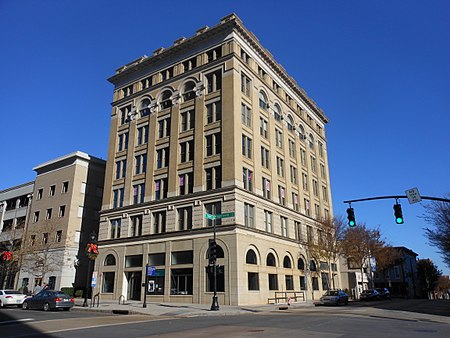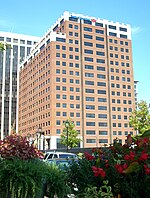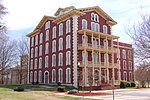Masonic Temple Building (Fayetteville Street, Raleigh, North Carolina)
Buildings and structures in Raleigh, North CarolinaClubhouses on the National Register of Historic Places in North CarolinaFormer Masonic buildings in North CarolinaMasonic buildings completed in 1907National Register of Historic Places in Raleigh, North Carolina ... and 1 more
Skyscraper office buildings in Raleigh, North Carolina

The Masonic Temple Building located at 133 Fayetteville Street in Raleigh, North Carolina was the state's first reinforced concrete skyscraper. Constructed in 1907 by Grand Lodge of North Carolina, the building represents the growth of Raleigh in the early 20th century and rise of the influence of Masons. The Masonic Temple Building was added to the National Register of Historic Places in 1979 and is a Raleigh Historic Landmark.It's one of two Raleigh places of the same name on the National Register of Historic Places, the other being the Masonic Temple Building located on Blount Street, which was also built in 1907.
Excerpt from the Wikipedia article Masonic Temple Building (Fayetteville Street, Raleigh, North Carolina) (License: CC BY-SA 3.0, Authors, Images).Masonic Temple Building (Fayetteville Street, Raleigh, North Carolina)
South Blount Street, Raleigh Warehouse District
Geographical coordinates (GPS) Address Phone number Website Nearby Places Show on map
Geographical coordinates (GPS)
| Latitude | Longitude |
|---|---|
| N 35.774119444444 ° | E -78.636797222222 ° |
Address
Lump
South Blount Street 505
27601 Raleigh, Warehouse District
North Carolina, United States
Open on Google Maps











